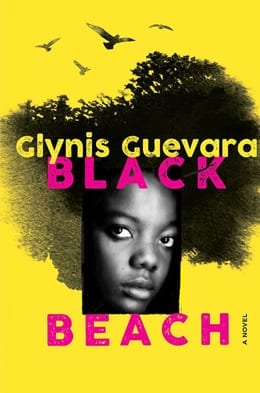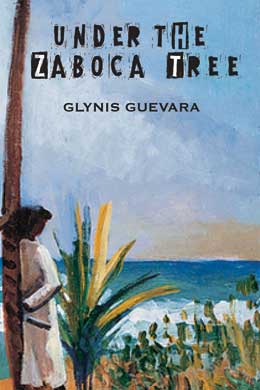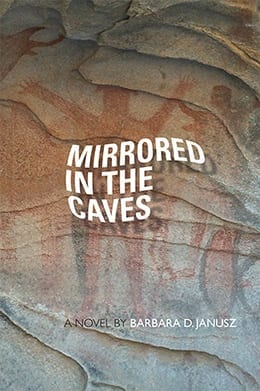Sixteen-year-old Tamera lives in La Cresta, a rural fishing community on a Caribbean island. Despite having the support of relatives, including her dad, Earl, her elder sister, Mary and her best friend and first cousin, Jan, she struggles to deal with her mom’s mental health issues and the absence of her boyfriend, Dalton who moves out of the village to work. Tamera’s life is further complicated after one of her classmates disappears, and weeks turn to months without any word of the missing girl’s whereabouts. Life gets even more challenging after Tamera suffers a personal loss. This difficulty draws her and Dalton closer, but his long absences remain a test the young couple must contend with. Tamera doesn’t know what she wants to do with her life, but she feels as if her closest friends are moving ahead and leaving her behind. After an environmental disaster wreaks havoc in Tamera’s hometown, she longs to help, but doesn’t have any of the required skills to make an impact. With time on her hands to soul search, she makes a life changing decision that leads her in the path of potential danger. Tamera finds herself at the centre of the mystery of her classmate’s disappearance, the resolution of which shocks the people of La Cresta.
“In Black Beach, Glynis Guevara examines a young woman’s journey towards adulthood with unsentimental clarity. Tamera is coming of age (and trying to figure out her future) in a Caribbean fishing village whose natural beauty and disturbing truths are equally part of her daily life. Oil spills and development threaten the island’s ecology and its fisheries as violence threatens the safety of its young women. Guevara neither romanticizes nor sensationalizes island life or the pain involved in growing up. Whether it’s a beloved mother’s lifelong struggle with mental illness, a classmate’s disappearance, or the insecurity and betrayal of first love, she shoots straight from the hip—and heart. Her heroine is gutsy and full of self-doubt. In other words, authentically human.”
—Diana Fitzgerald Bryden, author of No Place Strange, Clinic Day, and Learning Russian
Tamera’s cell phone rang as she and Jan crossed the street in front of Edgar’s half-finished wall. Even before checking the caller id, Tamera knew the call was from Dalton. That Saturday, because of his work commitments, Dalton wasn’t able to return to the village to attend the school carnival celebrations. At eighteen, he was one and a half years older than Tamera, having graduated from secondary school the previous June. He’d never missed the school carnival show during the five years he was enrolled as a student, and during his final year he participated in the King of Carnival competition for the first time, placing third.
He usually phoned Tamera at about eight o’clock almost every evening, but he had told her ahead of time that he was going to contact her earlier so she could share the results of the various carnival competitions at her school.
“It’s good to know that everything went well,” he said. “Sorry I had to miss it this year.”
“Yeah, it was really good, except that LaToya’s still on everybody’s minds,” Tamera said. “It’s horrible that we don’t know what happened to her, and a lot of people are still thinking that she ran away with somebody. Her mother’s at home worried sick, and I’m feeling guilty that we were at school celebrating.”
“You can’t stop living because someone’s missing,” Dalton said. “The reality is that over half a dozen missing people are still unaccounted for in Juniper and Toledo this year alone, so if we stop enjoying life because a person vanishes, then we will be miserable all the time.”
“But it’s different when you know the person,” Tamera sighed. “Me and LaToya aren’t best friends, but she is a decent person, and it’s real scary that someone disappeared from a tiny place like this and nobody don’t know nothing.”
”I know what you mean,” he said. LaToya’s mother lives next door to my family, and I’m sorry about what happened to her, but I have to live my life, and you have to live yours too.”
Tamera waved Jan goodbye as she turned to toward her home, the phone still glued to her ear. Tamera remained on the porch and chatted with her long-distance boyfriend for another ten or fifteen minutes. When she entered the house, her father was sprawled on the recliner that he’d purchased for his wife’s fortieth birthday the previous year. Earl, with a drink in hand, looked up at Tamera and gave her a crooked smile. A half-filled bottle of rum was on the floor next to the recliner, and a bottle of cola was next to it. “Your mother eyes were so full of fire when we met,” he slurred, emptying the glass in his mouth.
“Ma’s okay?” she asked as he poured another drink.
“She had big dreams,” he sputtered, then choked as he slugged back the drink. When he stopped coughing, he started to cry.
Tamera had only seen her father cry once before, and that was on the day his mother died.
“Life can give you roses or thorns, and you have to deal with whatever comes your way. You have to make the best of the cards that you draw,” he sputtered, and after gulping back another shot of rum, he placed the empty glass at his feet.
“I’m going to take a shower, Pa.” Tamera didn’t want to discuss her mother and needed to escape her father’s presence.
“You can’t spare your old man a few minutes?” he whined.
“Sure, Pa, but just let me wash off this gunk first.” She returned moments later with a bare face and some clean clothes, and reluctantly settled on the sofa facing him.
”When I asked your mother to marry me, she said no thefirst time, but I didn’t give up that easily, and she agreed to be my wife when I proposed the second time.” Earl had shared this tale many times before, but Tamera remained silent. She nodded and let him continue with his story.
After listening to her dad ramble for over fifteen minutes, she couldn’t get her mother out of her mind. She thought of the previous November when Alison had been discharged from the hospital and how quickly after returning home her mood had begun to fluctuate. Some days she was on a high and on other days she sank really low. At times, she had more energy than a two-year-old and she and her sister couldn’t keep up with her. During those times, she acted all- powerful and invincible, operating on less than three hours sleep a day. She painted watercolours for hours as if she had a pressing deadline. Her paintings were mediocre at best, yet she tried to convince her husband and kids that they’d sell for millions. It was during those times that Tamera almost wished her mother would get back to being down; it was so much easier to be with her when her mood was low. They could at least keep her still in one place. When she was high, there was no stopping her, and the whole family would have to be on high alert. Anything could happen.
The following Saturday, Mary and Tamera accompanied their father to the hospital to visit their mother. Children under twelve weren’t allowed to set foot in the institution, so Renwick stayed at home with Emma. Uneasy, Tamera stepped through the door, spotting her mother among the inpatients, many of whom had an empty, spaced-out look. Compared to the sparkling sunshine they’d left outside moments earlier, the dull and dim space inside the hospital felt stuffy and stale. Alison sat quietly on a chair, rubbing her lower arm mechanically. Several women in the gloomy room were making large, jerky movements and chattering incessantly under their breaths. Alison must have noticed her family members as they came through the door, because that very moment she slid out of her seat and came forward to greet them with short laboured steps. They met in the middle of the large room and she pawed at their sleeves as they encircled her.
“Hi, Ma.” Mary hugged her. “How are you?”
“Good,” she said.
“We brought you this.” Tamera held up a basket full of ripe fruit.
“You have more than enough to last the entire week,” Earl said with a gentle smile.
“Any Julie mangoes in there?” she said, peeking.
“Of course, Ma,” Mary said, hugging her. “We know they’re your favourite.”
“Thanks for coming.” Alison said, but she wasn’t smiling and her tone lacked inflection.
The mangoes, sapodillas, and bananas in the fruit basket had been harvested from Pa’s garden that morning; the apples and pears were purchased from a vendor in the vicinity of the hospital.
When the bell rang, signalling the end of visiting hours, a sudden gloominess appeared in Earl’s eyes, and Tamera felt tightness in her stomach. She needed to take one last look at her mother before stepping out of the enclosed area, so she spun around at the door, keeping her eyes on her mom as she torturously stepped away, widening the space between them. She tottered like an elderly person and then sluggishly sank in a low-slung chair that faced the window. Tamera waved, but her mother didn’t notice.









inannaadmin –
Black Beach by Glynis Guevara
reviewed by Zalika Reid-Benta
Quill & Quire – December 2018
https://quillandquire.com/review/black-beach/
Glynis Guevara’s second novel, Black Beach, is set in the small fishing town of La Cresta on an unnamed Caribbean island. The story follows 16-year-old Tamera Woods through a period of transition. She’s struggling in a long-distance relationship with her boyfriend, Dalton; is close with her mother but is fearful she will inherit her mental illness; and is bothered by the idea that her closest friends are leaving her behind as they move forward.
As she grapples with these complex experiences, Tamera works toward figuring out what she wants from her own future. While the novel focuses primarily on this journey, Guevara manages to make La Cresta more than a backdrop to a coming-of-age story through vivid supporting characters and meticulous portrayals of communal activities: “It was a tradition in the village that several months before carnival, Samuel would set up a mini mas camp in his front yard, a place where villagers could come and help create handcrafted carnival costumes. … Some of them were adorned with batting fabric and feathers, others with sequins and decorative braids.”
The focus on La Cresta is apparent from the first chapter, when Tamera and her father, Earl, learn that a girl from another part of the island has gone missing – the second in two weeks. Soon after, one of Tamera’s own classmates vanishes from a party and the neighbourhood is shaken by how close to home the disappearance occurs.
New developments on the island threaten its ecological balance, which in turn puts strain on the livelihood of the local fisheries. When an oil spill pollutes the beach, there are lasting consequences for the town. Rattled by her friend’s inexplicable disappearance and angry at the destruction of the land, Tamera grapples with the helplessness she feels. Running parallel to these unfortunate events are Tamera’s personal complications with her mother’s health and uncertainty about Dalton.
While the dialogue tends to be overly formal and expository, it provides great insight into Tamera and La Cresta, allowing the novel’s central mystery and Tamera’s emotional arc to feel rich, complex, and real. Guevara has written an honest book about the insecurities of growing up, the complexities of family dynamics, the disturbing secrets of a community, and the power of neighbourly love.
inannaadmin –
Black Beach by Glynis Guevara
reviewed by Jonine Bergen
CM Magazine Volume XXV Number 21 – February 8, 2019
https://www.cmreviews.ca/node/524
Grades 7-12; Ages 12-17
Excerpt:
Blazing sunlight scorched Tamera’s limbs almost as much as the Trinidad moruga scorpion hot pepper she’d ingested after a dare from her older sister, Mary, charred her insides. She climbed into her father’s car, and waved goodbye to her cousin, Azura. Tamera exhaled loudly, fanning herself with her hand. “It’s really hot out here,” she moaned.
“Like fire.” Earl, Tamera’s father, mopped up the sweat oozing down his forehead with a handkerchief he pulled from his shirt pocket. He swerved onto the street, veering left to escape a pothole. They listened to R&B, hip-hop, and soca music on the radio as he and his daughter headed home.
Earl pulled up at a red light and patted his daughter’s knee. “Your mother’s not doing too well this week,” he said.
Tamera, 16, has a lot on her mind. Her boyfriend, Dalton, is working away from home, her mother is sick again, and Tamera is worried about her future. What will she do after she takes the exams for the Caribbean Secondary Education Certificate? She knows she will have to get good marks if she wants to continue on to a higher degree, but she really has no idea if she wants to continue with her schooling or what she wants to do with her life. Living in the small coastal community of La Cresta may seem idyllic to outsiders with the beautiful weather and gorgeous beaches, but the locals worry about the environment, isolation, and the economy.
The location of La Cresta plays a large role in Glynis Guevara’s description-laced narrative. She has taken great pains to introduce the reader to Tamera’s world which has problems that need facing, questions with no answers, beauty, and pain. In short, Guevara stripped off the top layer of the tourist’s Caribbean experience to present a darker but also more realistic version of the beautiful island.
inannaadmin –
Black Beach by Glynis Guevara
reviewed by The Miramichi Reader – December 10, 2018
http://miramichireader.ca/2018/12/black-beach-review/
Trinidadian Glynis Guevara has now written her second Young Adult (YA) novel, Black Beach, following 2017’s Under the Zaboca Tree. Both titles are published by Inanna Publications. Black Beach is set (like its predecessor) in Trinidad. Tamera is sixteen-years-old and lives with her father and mother in the rural fishing village of La Cresta. Her older sister Mary lives next door with her husband Renwick and their young child Emma. As with most small communities, it is a close-knit one and her relatives do not live far away, and when bad things start to happen, they affect everyone.
At home, Tamara’s mother suffers from bipolar disease and is having a difficult time with her medications. She is either a zombie or super-hyper and is a real handful for Mary and Tamara. She has been hospitalized before and will soon need to be again. Also, one of Tamara’s schoolmates, LaToya, has gone missing. Recently, there has been a rash of missing young girls on the island, and many think there’s human trafficking occurring. There are also ecological problems such as sea turtles getting caught in fishermen’s nets (Tamara’s father is a fisherman), oil spills ruining the beaches and an explosion at the fish processing plant that severely injures Earl, Tamara’s father.
If this sounds like a lot packed into 200 pages, Ms. Guevara magically executes it all seamlessly with a laid-back narrative that is mature enough for the YA reader as well as an adult one. The issues that Tamara and her friends face in Trinidad are like those faced by youth anywhere: boyfriends, school grades and further education, moving away, parental separations, and so on:
There are moments that Ms. Guevara uses to educate the reader too, such as the aforementioned issue with turtles and the oil spills that directly affect the ecology and the economy of their village. As a more mature reader, I certainly got caught up in Tamara’s circle of friends and family and there was even a little surprise near the end that I actually didn’t see coming. In short, a very convincing, well-written YA novel sympathetic to any young person’s concerns in these troubled times.
inannaadmin –
Black Beach by Glynis Guevara
reviewed by Patricia Jermey
Resource Links Volume 24, No. 3 – February 2019
Grades 7-12
Excerpt:
Tamera has decisions to make. Having finished her CSEC, she needs to decide if she will continue on with school. Her boyfriend, Dalton, has moved away from their little Caribbean island village to find a better job, and she is not sure what their future will be. Her married older sister has joined a gospel church, and wants Tammy to come with her. Her mother has bi-polar mental illness and needs a lot of care.
Over the ensuing year, her village is beset by further complications. A neighbourhood girl Tammy’s age disappears, and despite everyone’s support, there is no sign of her for weeks. The fishing depot where her father keeps his supplies burns down, and he is badly injured. Her mother takes off, and is found drowned at the shore. Then there is an oil spill, killing wildlife, damaging the future fishery, and making many villagers ill. Finally Tammy finds her passion: she will return to school to study environmental science, and help to preserve their precious way of life.
Guevara clearly draws on her personal experience of the Caribbean for detail and insights. There are memorable images of the fishermen killing loggerhead turtles accidentally in their nets as an inevitable result of earning their living, while other turtles come to the beaches to lay eggs at night and support the eco-tourism industry. As with many other situations in the novel this is not a black and white issue, and Guevara does not try to provide simple answers.
She also spotlights the struggle of women in the village through various characters: the older sister who married young when she got pregnant, the village flirt who is abducted andabused, the mentally ill mother who does not have adequate medical care, the handsome substitute teacher who woos Tammy and is then found to have a criminal record for statutory rape. Education is the means for Tammy, and other girls, to control their futures.